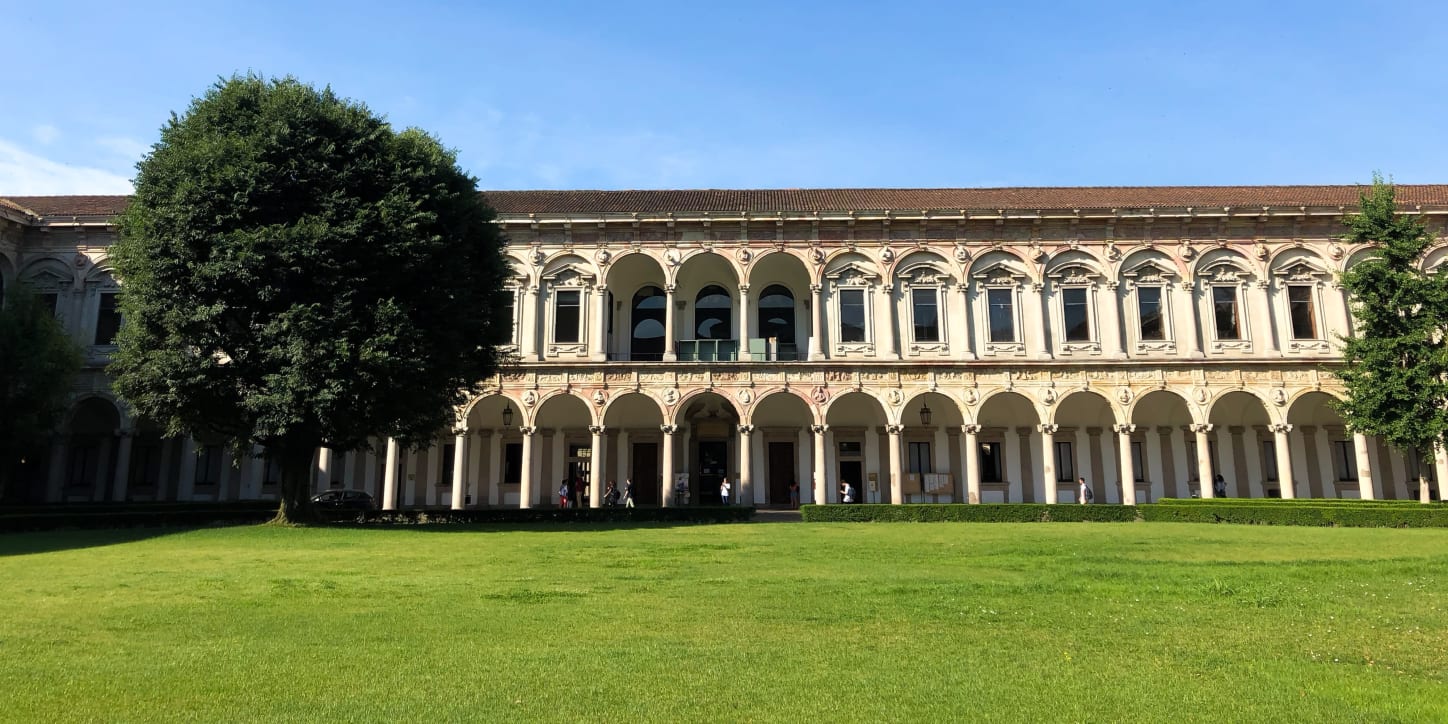
Master's Degree in M3EP: Erasmus Mundus Joint Master’s in European Environmental Economics and Policy
DURATION
2 Years
LANGUAGES
English
PACE
Full time
APPLICATION DEADLINE
15 Jan 2025*
EARLIEST START DATE
Sep 2025
TUITION FEES
EUR 33,600

STUDY FORMAT
On-Campus
* for citizens from a country within the EU, EEA, or Switzerland: 1 March 2025
Introduction
The 2-year MSc programme in European Environmental Economics and Policy (M3EP) prepares you to take on one of the most complex and demanding policy areas for the EU and its member states in the 21st century: the green transition.
This Erasmus Mundus Joint Master’s programme is delivered collaboratively by five 4EU+ universities (Milam, Copenhagen, Warsaw, Prague, Heidelberg).
You will gain a firm disciplinary and interdisciplinary footing in both environmental economics and environmental policy and politics, equipping you to effectively design, implement, and analyse policy solutions for the complex environmental challenges facing European and international societies.
The five universities offering the programme are all part of the 4EU+ European University Alliance, a transnational strategic association of European research-intensive public universities.
The first year (common to all curricula) is held at the University of Copenhagen. For the second year (Specialisation Year) you can choose one of the other 4 partner Universities (Milan, Heidelberg, Warsaw, Prague), each one offering a different curriculum/track.
By choosing the University of Milan, you will attend the curriculum Climate Change and Energy Economics , designed for students who aspire to become experts in addressing the European Union’s ambitious sustainability goals.
This programme equips students with the skills to navigate the complex dynamics between economic systems, climate policies, and sustainable energy transitions, emphasising the need for innovative, data-driven approaches to global and European energy demands. Through a robust curriculum combining economic modelling, environmental policy analysis, and exposure to the most recent literature on climate change and energy economics, students gain a comprehensive understanding of how economic policies can mitigate climate impacts and support the transition to clean energy.
Admissions
Scholarships and Funding
The Erasmus Mundus Scholarship is awarded to the best students admitted each year to the programme from all over the world.
The scholarship amounts to a maximum of 33,600 € (1400 € per month for up to 24 months).
All scholarship holders are granted a tuition fee waiver.
To be eligible for the scholarship, you must
- Comply with the Erasmus Mundus Mobility Requirements
- Be a full-time student on the programme.
Facilities
Curriculum
1st year (60 ECTS) - Foundation
- Environmental Economics and Policy in Europe (University of Copenhagen)
2nd year (60 ECTS) - Specialisation (each partner Universities offers a different specialisation year; by choosing the University of Milan, you will attend the curriculum "Climate Change and Energy Economics")
- Climate Change and Energy Economics (University of Milan)
| Semester 1 | Semester 2 |
| Compulsory subject elements (18 ECTS)
[1] Italian Language Skills is compulsory for non-Italian speakers. | Compulsory subject elements (30 ECTS)
* Part of the MSc thesis for a total thesis work of 30 ECTS. |
| Elective subject elements (12 ECTS)* To be selected from the following list:
|
Program Tuition Fee
Career Opportunities
As a graduate of M3EP, you will be qualified to become a professional within business functions and/or areas such as:
- Small to large private companies, at the corporate level as well as in innovative startups, engaging in various efforts towards the circular economy and practical implementation of the green transition, in the overall context of sustainability.
- Governmental bodies and public agencies are involved in developing, analysing, implementing, managing, and monitoring European and national environmental policies. Universities and research institutions where graduates are involved in economics and political research related to sustainability and the green transition.
- A PhD programme.
- Graduates from this programme will often be involved in solving broad-spectrum environmental policy challenges that require interplay between economic analysis, political analysis, a firm understanding of policy in practice, and interdisciplinary teamwork.
Graduate profile
The programme prepares you to take on one of the most complex and urgently demanding policy areas for the EU and its member states in the 21st century: The green transition.
This involves, for instance, the development as well practical implementation and operationalisation of the EU’s vision of the European Green Deal aiming to achieve the long-term objectives of the EU’s Environment Action Programme as well as the UN’s Sustainable Development Goals.
As a graduate from Erasmus Mundus Joint Master’s (EMJM) in European Environmental Economics and Policy (M3EP), you will be qualified to successfully design, implement and analyse policy solutions to the complex environmental challenges facing European and international societies today.
During the programme you will be provided with the conceptual foundations, analytical skills, methods, and integrated problem-solving techniques of economics and political science, which are required to work with contemporary environmental challenges at the nexus between environmental economics and environmental policy and politics.
Competence description
No matter which specialisation you choose, you will acquire broad and professional competencies enabling you to:
- Understand central theories and frameworks within both environmental economics and political science.
- Assess the validity of economic statements as well as explain political processes underlying public policy in the context of the green transition.
- Perform relevant qualitative as well as quantitative analyses on a multitude of data sources, working in interdisciplinary and problem-oriented teams, and using state-of-the-art analytical techniques from the fields of economics and political science.
- Understand the EU’s environmental policy and relate it to national implementation across its member states, e.g. in terms of the myriads of issues and decisions that will need to be taken by governments and their implementing agencies, by non-state actors and civil society, and by businesses.
- Communicate environmental policy proposals and assessments to relevant decision-makers.
